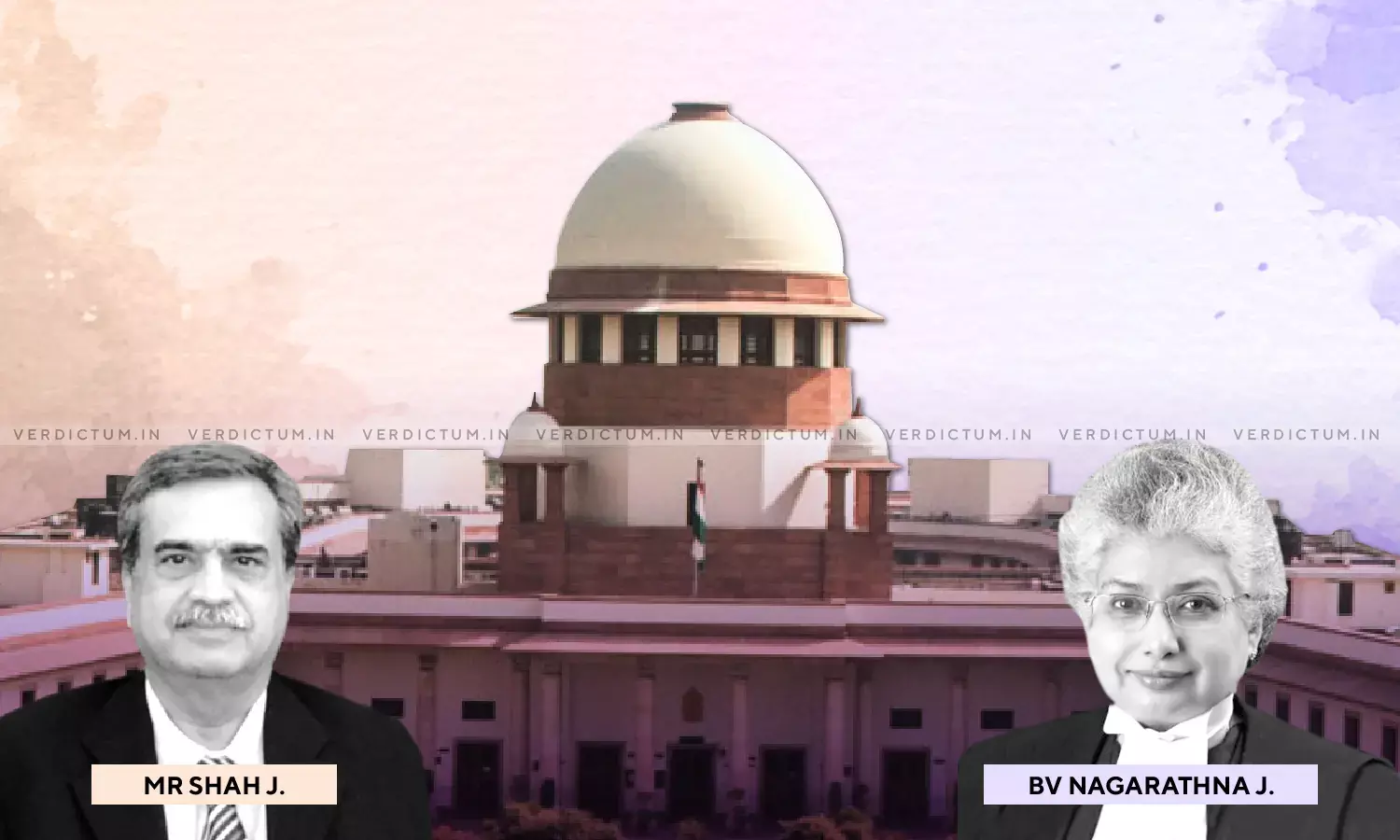Whether HC Can Exercise Jurisdiction Over A Tribunal Situated Outside Its Territorial Limits- SC Refers Matter To Larger Bench

The Supreme Court has referred to a larger bench the issue regarding the jurisdiction of a High Court to entertain a challenge against an order passed by a Tribunal which was situated outside its territorial jurisdiction. The reference was made in a case related to whistleblower Indian Forest Service Officer Sanjiv Chaturvedi.
The Bench of Justice MR Shah and Justice B.V. Nagarathna said that “the issue involved is with respect to the territorial jurisdiction of the High Courts and the effect of introduction of Article 226(2) of the Constitution of India and the statement of the Law Minister while introducing Article 226(2) of the Constitution referred to herein above and that the issue involved affects a large number of employees and is of public importance, we think it appropriate that the matter involving the issue of territorial jurisdiction of the concerned High Court to decide a challenge to an order passed by the Chairman, CAT, Principal Bench, New Delhi should be considered by a Larger Bench.”
In this case, the appeal was preferred by the Government against the decision of the Uttarakhand High Court had allowed the writ petition and had set aside the order passed by the Central Administrative Tribunal (CAT), Principal Bench at New Delhi was challenged.
An application was filed by the original writ petitioner- respondent before the Nanital Circuit Bench of the Central Administrative Tribunal whereby the respondent had sought for quashing of the existing system of 360 degree appraisal in empanelment of officers at the level of joint Secretary and above in the Central Government. The union Government filed an application seeking transfer of the matter to the Principal Bench at New Delhi.
The Principal Bench allowed the transfer after noting that the procedure of empanelment which was under challenge would impact the very functioning of the Central Government. This order was assailed before the Uttarakhand High Court by way of a Writ Petition. The Government challenged the territorial jurisdiction of the Uttarakhand High Court to entertain the Writ Petition.
The High Court referred to the decision of the Apex Court in the case of L. Chandra Kumar Vs. Union of India (1997) 3 SCC 261, allowed the petition and observed that there was no requirement of law that a policy decision would, necessarily, be challenged before the Principal Bench and that there was no provision under the Act, 1985 that a challenge to a policy decision could be heard only by the Principal Bench.
Solicitor General Tushar Mehta and ASG KM Nataraj appeared for the appellant- Union of India referred to the decision in the case of L. Chandra Kumar (supra) and argued that “all decisions of Tribunals created under Article 323A and Article 323B of the Constitution will be subject to the scrutiny before a Division Bench of the High Court within whose jurisdiction the concerned Tribunal falls.”
Senior Advocate Shyam Divan appeared for the respondent and argued that the decision in the case of L. Chandra Kumar could not be interpreted in a way to be limiting the jurisdiction of other High Court under Article 226(2) as limiting the remedy under Article 226 was contrary to the spirit of the Constitution, contrary to the spirit and principle of access to justice and contrary to the basic structure of the Constitution which enabled judicial review across the country and not at one concentrated location.
The Apex Court noted the submissions made by the counsels and said that the issue involved in the matter was of great public importance as it affected a large number of people and further asked the registry to place the matter before the Chief Justice of India for appropriate orders at the earliest so that the issue was resolved at the earliest.
Cause Title- Union of India v. Sanjiv Chaturvedi & Ors
Click here to read/download the Judgment

